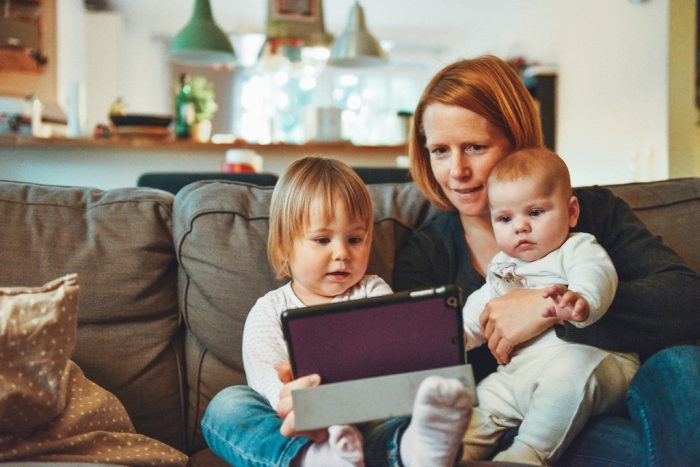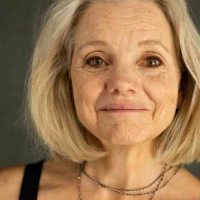I turned out to be one of those writers who essentially stopped writing once I had children.
It certainly wasn’t my intention, and I went down fighting, until years into the struggle. I simply decided to label what was obvious—I couldn’t balance the demands of a creative life with that of family life. Much has been written about the decision to choose art over the family. Much has also been written about a mother’s guilt while attempting to juggle family and art. Over the years, I have read it all trying to find comfort, guidance, and justification for my actions. I didn’t find much.
Sometimes I was lucky enough to have creative support and time, other times, not very much. Another issue was that I couldn’t handle jumping in and out of the deep waters of creation day after day. During those years I kept promising myself that I’d “get it together” fairly soon, like other moms. I tried to fit in poetry workshops, journaling, blogging, and freelancing jobs as often as I could around my other obligations. Notebooks with half thought-out notes littered the house, my purse and the car. Although many find that writing through motherhood keeps them sane, it didn’t for me.
The act of deep, creative writing from my core began to bite at the edges of my mental health.
As Mary Oliver writes in Upstream: Selected Essays, “…creative work requires a loyalty as complete as the loyalty of water to the force of gravity.” Even when I had few outside distractions, I struggled with holding on to that loyalty, to that steadfast, deep concentration one needs to create. Yet, before my two daughters arrived, I had still managed to stitch together a writing life, distractions and all. I had worked in a variety of editorial services, just finished up an MFA, published poems, taught poetry classes, and looked forward to my next stage— that of the working mother. I wasn’t worried about it; I would just make it work. I was good at making things work.
Back in my mid-20s, working as a reporter for a small hometown weekly, I confided my plan to an advertising sales-executive. She was a lovely, warm woman with four grown children, and had a former life as a painter. She sat for a moment and then replied, quietly, “I don’t think you can really do art with a family.” I smiled pleasantly and wrote her off as old-fashioned—not devoted enough. I, the new generation, would manage the situation much differently. Having it all wasn’t going to be an issue.
I don’t know how the wild internal rodeo of journaling didn’t clue me in. Once the responsibility of kids arrived, sitting down and strapping myself into another intense relationship with pencil and paper was almost undoable. What is also true is that our family had unique challenges, and my commitment to those challenges is, and was, absolute. As a result, the delicious luxury of ruminating about why a sentence doesn’t flow, whether a word might work here or there, of holding the thread of discovery in my mind to the exclusion of all else, was constantly interrupted.
Whenever I was called away mid-thought, I felt like my heart was being torn. When I took too long to get back to nuggets of poems or essays, the light that animated those pieces had faded. And the feeling of abandoning these little bits of heart flesh became too painful. After a while, not even trying became a relief. It was an easy way to avoid feeling flawed and not committed enough. This may have all been true—the commitment part—but at that point, I needed to find a kinder way of telling this story to myself. When a friend brought up the concept of being a “writer who isn’t writing,” I grabbed the phrase like a piece of driftwood bobbing in rapids.
Finally, I had found a way to understand myself so I didn’t keep feeling like I was losing at life.
I draped the idea comfortingly around my psyche and moved forward—a slice of self-respect restored. I settled into looking ahead. I didn’t project that when my kids left, “something” would come back. My bruised inner self couldn’t handle being jerked around with a future obligation. I just promised that I would do my best to stay in the moment, and I would build the best post-motherhood life I could when the time came.
Amazingly, I have more time, and more quiet now. As my girls dive into their lives, I have many nights and weekends where they don’t want me around, or more importantly, I understand that I don’t need to be present. So, now, I am refinding the warm bath that writing can be.
I am excavating the self that I put aside and buried much more deeply than I realized.
That it’s coming now, when I am an older woman, is not what I would choose. I am still struggling, along with my peers, with how to stay feeling relevant and useful after a look in the mirror. That I couldn’t manage it all—and manage it spectacularly—still is raw.
The self-judgment that kept telling me I should have pulled off both motherhood and writing is loud if I’m not vigilant. It says I should have been able to handle the deep, slow act of creation, alongside a myriad of daily phone calls, endless chauffeuring, producing nutritious dinners, wrangling homework and hanging on to the vestiges of a money-earning career.
But in the right-here-right-now present, there are a few things I’d like to express. Just for myself, and anyone else who’d care to listen. And maybe now, I can do it without tearing at my heart. A creative life, if I am careful with myself, might be able to be part of my post-family life. In fact, it might be the core of it. Maybe after almost two decades of wrangling my family, I can bring all that experience back to myself—a gift for the woman who was stretched so thin she could barely handle her own wild, creative rodeo.











Read 4 comments and reply